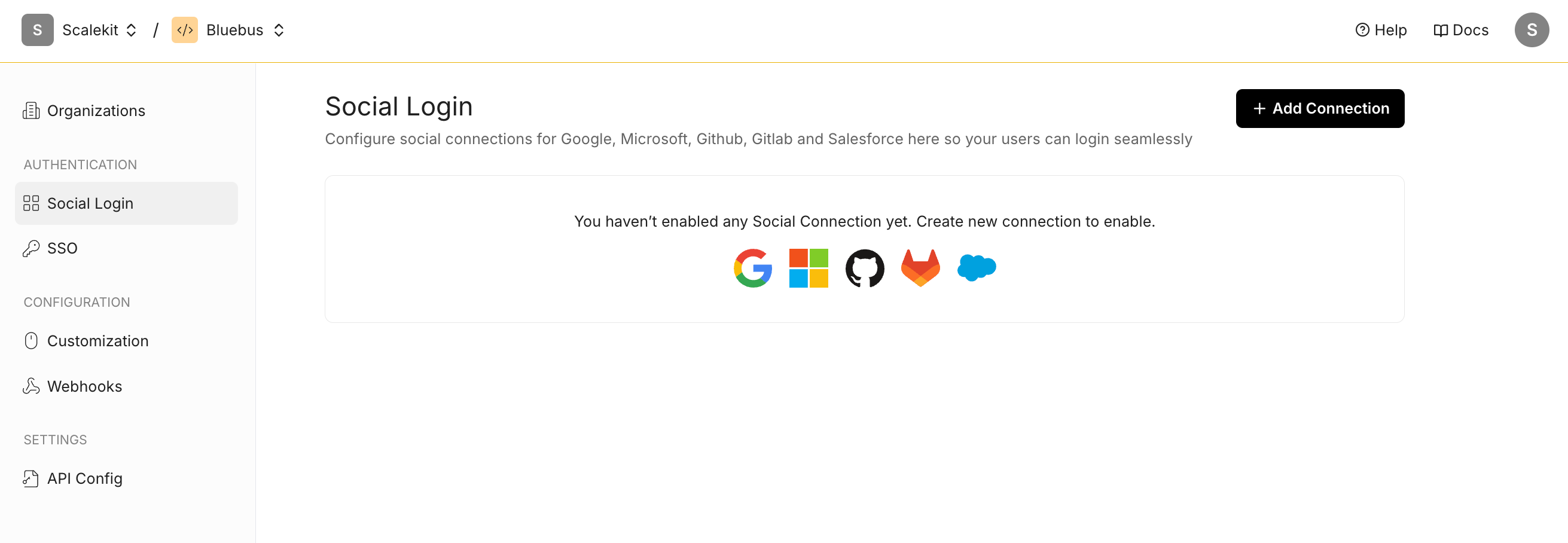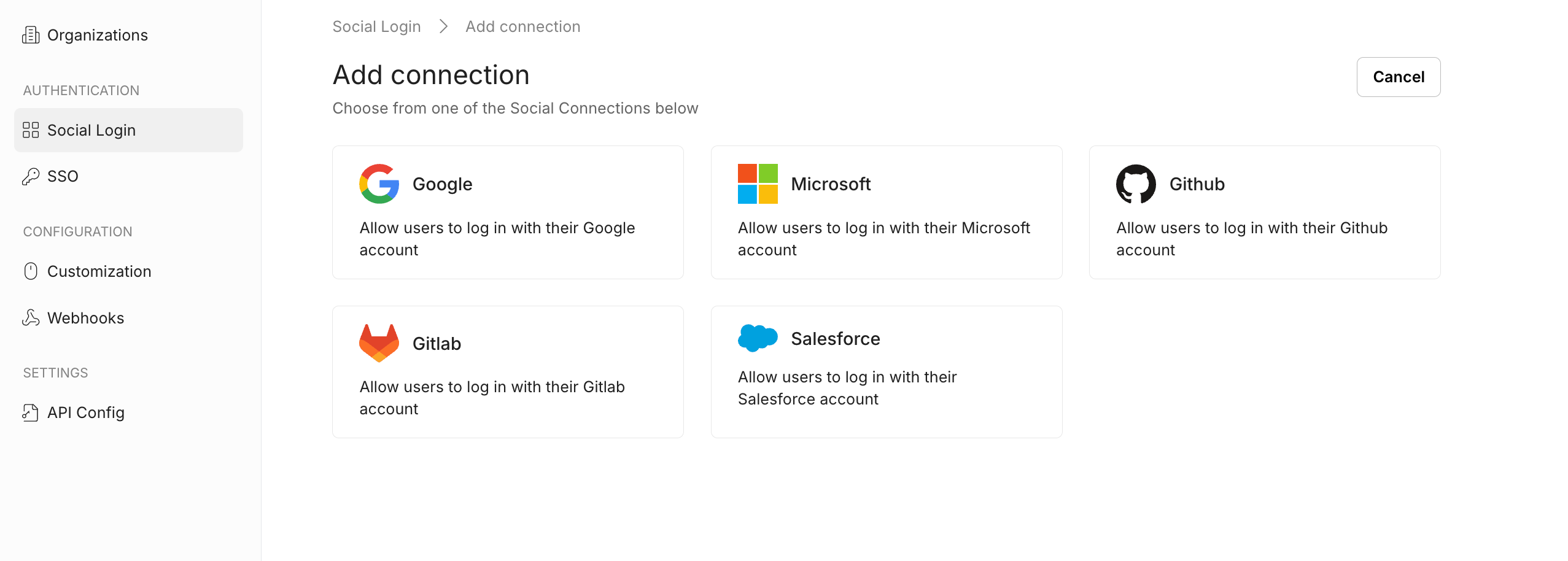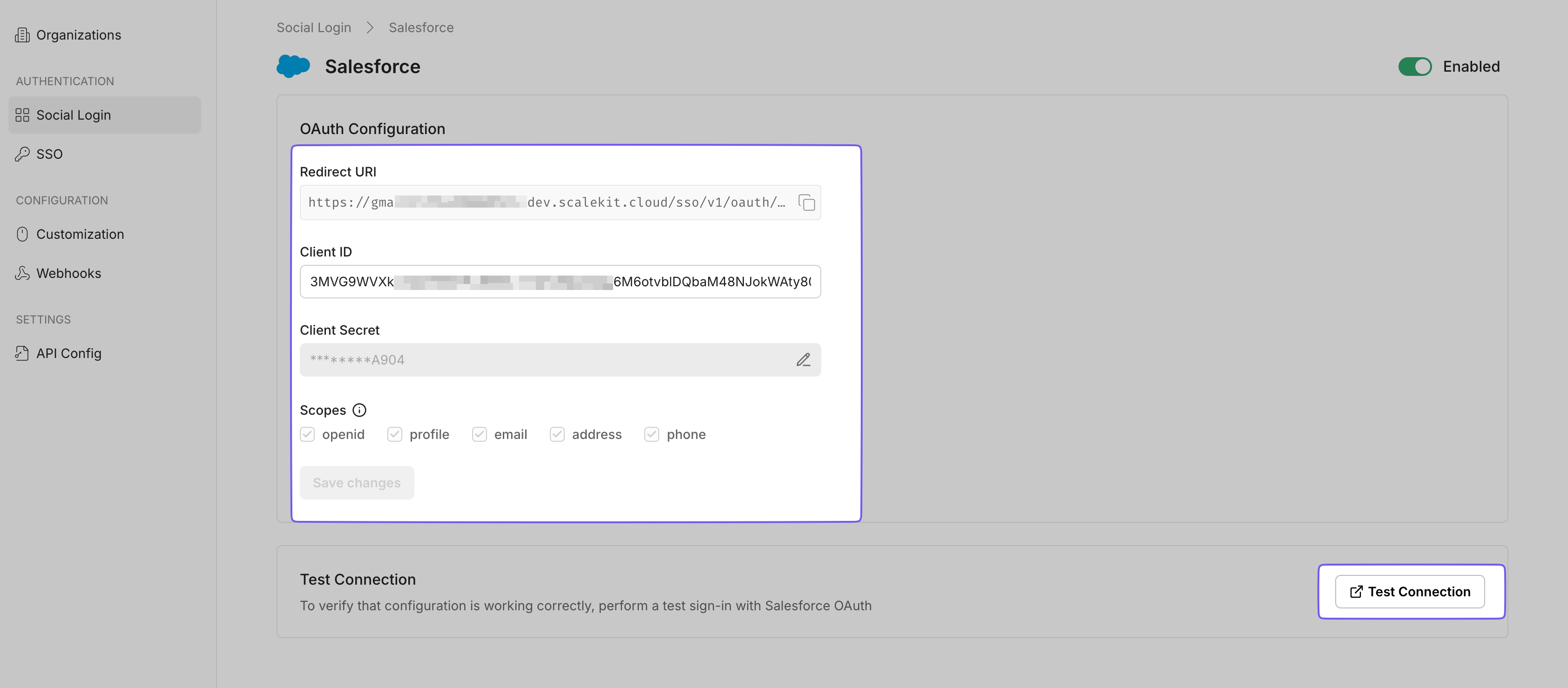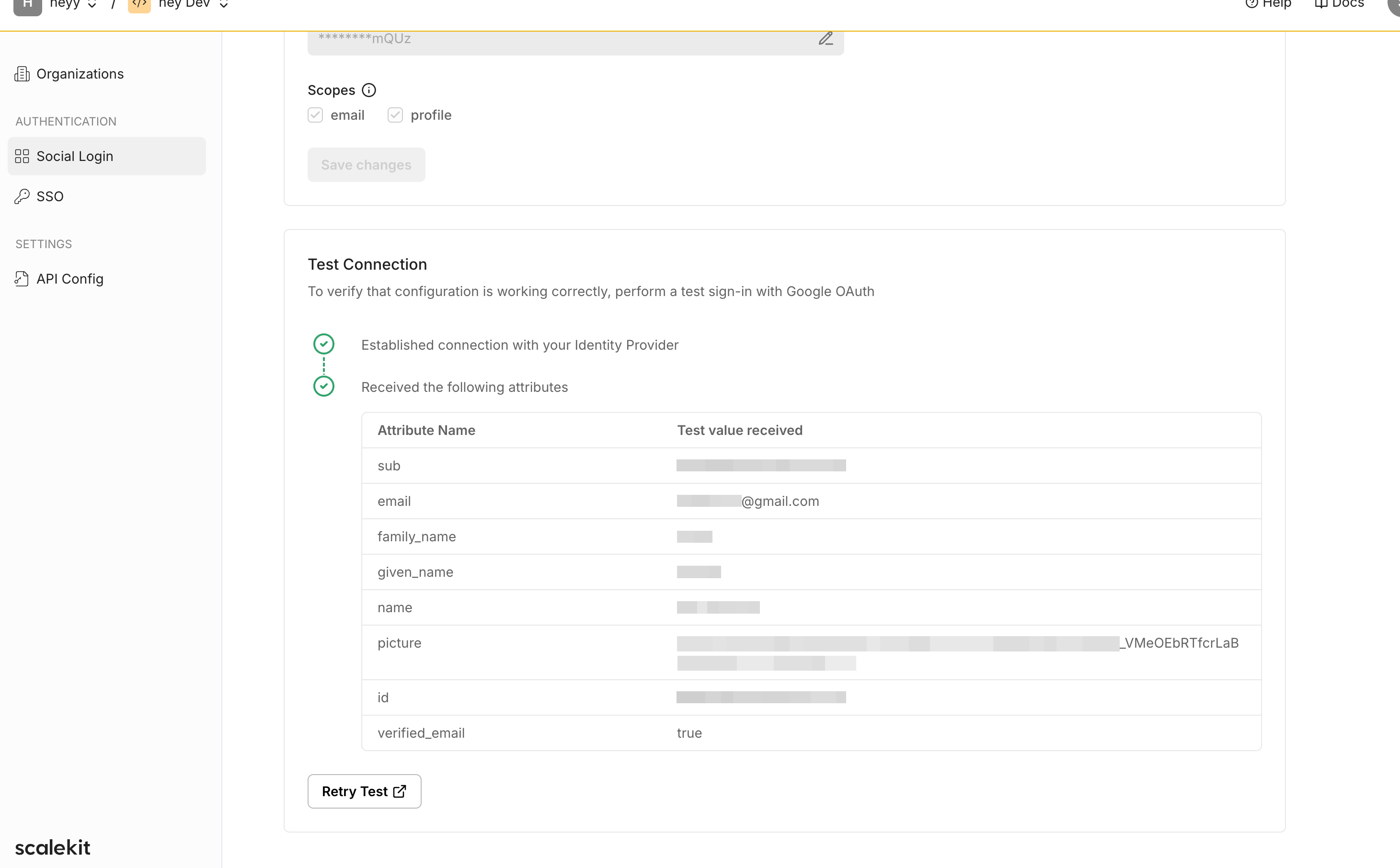Salesforce as your sign in option
Learn how to integrate Salesforce Sign-In with Scalekit, enabling secure social authentication for your users with step-by-step OAuth configuration instructions.
Scalekit enables apps to easily let users sign in using Salesforce as their social connector. This guide walks you through the process of setting up the connection between Scalekit and Salesforce, and using the Scalekit SDK to add “Sign in with Salesforce” to your application.

By the end of this guide, you will be able to:
- Set up an OAuth 2.0 connection between Scalekit and Salesforce
- Implement “Sign in with Salesforce” in your application using the Scalekit SDK
Set up Salesforce connection
Section titled “Set up Salesforce connection”Access social login settings
Section titled “Access social login settings”Open your Scalekit dashboard and navigate to Social Login under the Authentication section.

Add Salesforce connection
Section titled “Add Salesforce connection”Click the ”+ Add Connection” button and select Salesforce from the list of available options.

Configure OAuth settings
Section titled “Configure OAuth settings”The OAuth Configuration details page helps you set up the connection:
- Note the Redirect URI provided for your app. You’ll use this URL to register with Salesforce.
- Client ID and Client Secret are generated by Salesforce when you register an OAuth App. They enable Scalekit to authenticate your app and establish trust with Salesforce.

Set up Salesforce OAuth 2.0
Section titled “Set up Salesforce OAuth 2.0”Salesforce lets you set up OAuth through the Microsoft Identity Platform. Follow Salesforce’s instructions to set up OAuth 2.0
-
Use the Redirect URI from Scalekit as the Redirect URI in Salesforce’s setup. The URI should follow this format:
- Development:
https://{your-subdomain}.scalekit.dev - Production:
https://{your-subdomain}.scalekit.com
- Development:
-
Copy the generated Client ID and Client Secret into the Scalekit Dashboard
-
Click “Save Changes” in Scalekit for the changes to take effect
Test the connection
Section titled “Test the connection”Click the “Test Connection” button in Scalekit. You will be redirected to the Salesforce Consent screen to authorize access. A summary table will show the information that will be sent to your app.
